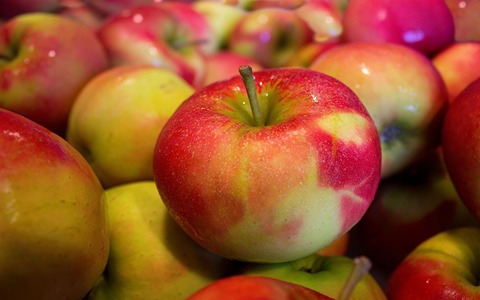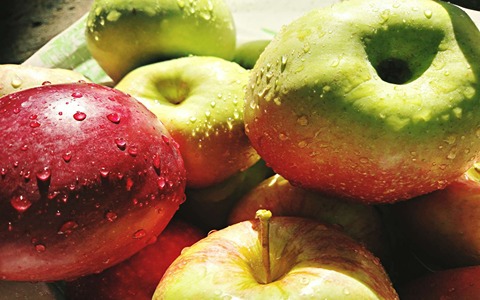In recent years, there has been a growing concern among consumers about the sugar content in the foods they consume, with a particular emphasis on natural sources like fruits.
Apples, being one of the most popular fruits globally, have not escaped this scrutiny.
In this article, we will explore the apple sugar content, its implications for health, and why apples remain a smart choice for health-conscious consumers.

Understanding Apple Sugar Content
Apples naturally contain sugar, mainly in the form of fructose, a naturally occurring sugar found in fruits.
However, the sugar content in apples can vary depending on the variety and ripeness. On average, a medium-sized apple contains around 19 grams of sugar, with a range of 15-20 grams.
Moderate Sugar Levels
While the sugar content may seem relatively high, it's important to remember that these sugars are naturally occurring, accompanied by essential fiber, vitamins, and minerals.
The presence of fiber in apples helps slow down the digestion and absorption of sugar, avoiding sharp spikes in blood sugar levels.
Furthermore, apples are considered low on the glycemic index (GI), a measure of how quickly a food increases blood sugar levels.
With a GI of around 39, apples fall within the low range, making them a suitable choice for individuals concerned about blood sugar control.

Apples Vs. Processed Foods
Comparing apple sugar content to processed foods and sugary snacks is essential for understanding its significance in a healthy diet.
Processed foods, such as soft drinks, candies, and desserts, often contain added sugars along with a myriad of artificial ingredients.
Choosing whole fruits like apples instead of processed snacks is a smart move for several reasons.
Firstly, apples provide valuable nutrients, such as dietary fiber, Vitamin C, and antioxidants, which promote overall health.
Secondly, the fiber content in apples creates a feeling of fullness and can aid in weight management and appetite control, reducing the likelihood of overindulging in less healthy snacks.

Consumption Guidelines
While apples are a nutritious choice, it's essential to consider portion sizes and overall diet balance.
Experts generally recommend consuming around two servings of fruit per day, which can easily be achieved by adding a medium-sized apple to your daily fruit intake.
If you have specific dietary concerns or medical conditions, such as diabetes or insulin resistance, it's advisable to consult with a healthcare professional or registered dietitian for personalized advice regarding your sugar intake.

Conclusion
Understanding the sugar content in apples is crucial for consumers who are conscious about their overall health and well-being.
While apples do contain natural sugars, their numerous health benefits, fiber content, and low glycemic index make them a favorable choice.
By making informed choices and incorporating apples into a balanced diet, individuals can enjoy the natural sweetness of this fruit without compromising their health goals.
